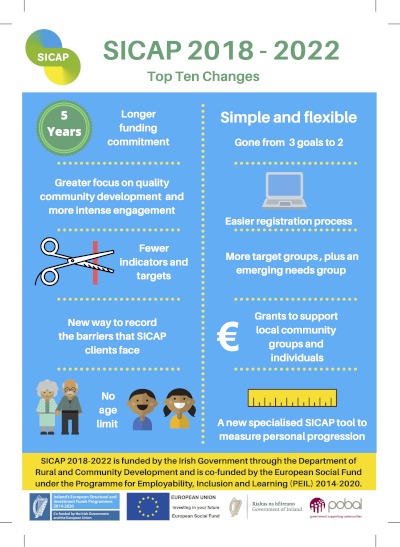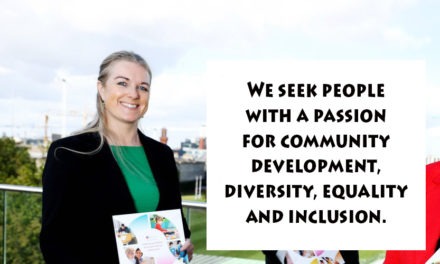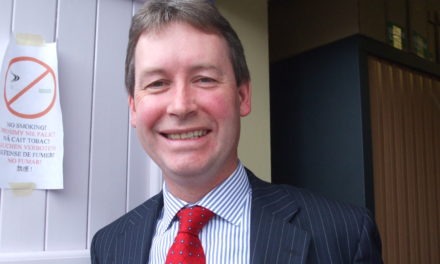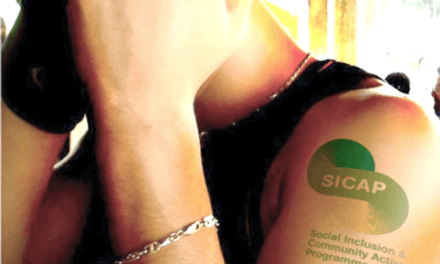People forced to the margins of society are far more likely to be radicalised, so why aren’t we talking more about successful social inclusion approaches?
Right-wing populism, coming from both east and west, is creeping this way. An ugly, exclusionary kind of nationalism is emerging. In this context, it is even more important to shine a spotlight on work we do in the area of social inclusion.
Our work is not something for us to be humble about.
We do try to promote it. Every year, we have Social Inclusion Week, with hundreds of events held around the country. But what about promoting the Social Inclusion and Community Activation Programme (SICAP) itself?
Have local community development committees got any new ideas for promoting SICAP?
The EU, which part-funds the programme is nowadays getting fixated on visibility, and rightly so. SICAP is worth €38 million this year alone, and you’d think everyone would know about it.
Even people who benefit from SICAP support – while emerging better off – may not necessarily know the name of the programme they received support through. Does that matter? I believe so.
The programme aims to reduce poverty through community development and, every day, it achieves hundreds of major and minor successes.
The programme helps to combat discrimination. Its target groups include young people not in education or employment, migrants, lone parents, people on low income, people with disabilities and more – in short, the people who have been left on the margins of society and those who most need help to remain within it.
A global concern
The rise of the right under Trump has seen the semi-normalisation of racism, misogyny and militarised police in the US. Anti-minority sentiment is amplified and people on the margins are pushed away.
Yes, there are now more jobs in the country, but at a cost. And what’s there to support those on the margins? Have they anything like our SICAP?
It’s important the public in Ireland knows about this unique kind of social inclusion work – it could act as a very important way of preventing far right attitudes taking root.
SICAP already reaches into nearly every community. The programme involves the government, the EU, Pobal, 33 local community development committees operating under local authority auspices, 51 local development companies, hundreds of groups engaged as project partners, and hundreds of community workers.

Infographic: Pobal. (Click image for larger version.)
In 2016, SICAP supported 47,511 individuals on a one-to-one basis, and 3,076 local community groups. That’s how many were SICAPed in just 12 months.
We need to emphasis why supporting people on the margins matters. We need to highlight the easy ways (relatively speaking) in which individuals and communities can be empowered, and talk about why we need a more equal and fair society.
Every week, more than a thousand new beneficiaries emerge.
SICAP is something we and our political representatives should be striving to promote. The programme is hard-working, but does not get the public recognition or awareness it should.
Many of us have a neighbour, friend or relative who could benefit a lot from SICAP support. People involved in setting up community groups would qualify for SICAP support.
We need to spread the word about inclusion at community level. Everyone should know about SICAP, even people who are not in direct need of its support. All of society benefits. Empowered communities should be encouraged to acknowledge the support they are receiving through SICAP.
If nobody knows about long-term community development initiatives, it leaves the field open for populists with short-term and nasty solutions to take over.
The evidence is there to show that the programme makes a real impact. Let’s get the word out there.




